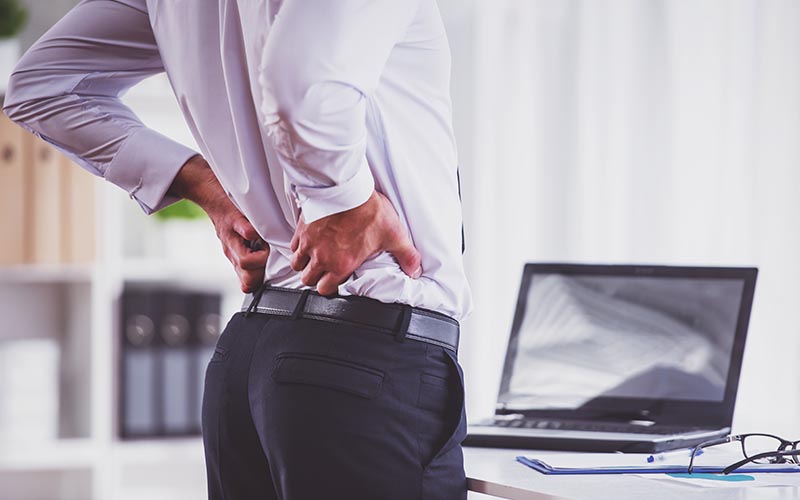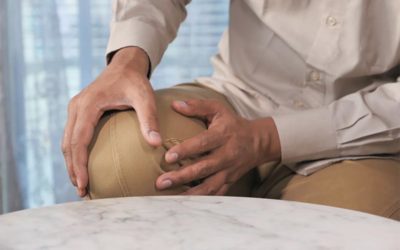As we all know, the spine is important to our posture and balance. However, not many realize just how important the spine is when it comes to other simple daily tasks. As a result, many go about their day thinking little about how poor spinal health can develop into a variety of health problems. Because most spinal issues come from poor posture, diet and lifestyle choices, or chronic spine misalignment, many people do not realize something is wrong, and spinal issues go untreated.
Signs of Poor Spine Health
Poor spinal health can lead to many issues as well as pain and discomfort you may notice such as back pain, neck pain, or headaches; there may also be some issues you may not realize from poor spinal health as well. Knowing how to recognize the symptoms of poor spinal health are important to understanding when you need to reach out for help from your doctor. The most recognizable signs of poor spinal health include but are not limited to:
- Joint pain
- Headaches
- Fatigue and reduced energy
- Sore or stiff back, neck, and shoulders
- Muscle spasms in the back and neck
- Numbness and tingling in your extremities
Although the best way to overcome spinal problems, is through the help of a professional, there are some things you may do at home to help. Consider how you sleep, if you sleep on your back, you can relieve spinal pressure by placing a pillow under your knees, if you sleep on your side you can relieve the pressure by placing a pillow between your knees; this will give your spine time to relax and relieve spinal discomfort. Although some at-home pain management and changes can help, it is very important to work with a professional if you notice a lot of poor spine health symptoms.
The Effect of Screen Time on the Spine
Many people spend 8 hours or more on the computer screens due to work requirements. It is not uncommon for hours at a desk to be followed by more sitting in front of the TV or scrolling through social media. These activities can lead to poor posture, neck pain, back pain, and shoulder problems. If you work at a desk, be sure to take time out of your day to get up and walk around and try to avoid slouching when you are in the office.
Poor Posture and Spine Health
Many things can lead to poor posture, which can create an array of spinal issues. As we get older, bad habits such as slouching and inactivity cause muscle fatigue and tension that ultimately lead to poor posture.
Symptoms of Poor Posture
- Rounded shoulders
- Potbelly
- Bent knees when standing or walking
- Back pain
- Body aches and pains
- Muscle fatigue
- Headache
Good posture should feel effortless, which is why suggestions like throwing your shoulders back and sticking your chest out may feel uncomfortable too. Instead, adjust your posture to what your body is telling you. It should feel natural and easier to hold a good posture. Going back to good posture from years of bad habits may take time and constant awareness of yourself.
When incorrect posture is used, several areas of stress may develop within your muscles, spinal joints, and discs. For example:
- Hunching for long periods while sitting or standing can cause your back, core, and abdominal muscles to become strained and painful, reducing their blood supply, and develop stiffness and weakness in the lower back
- An unsupported sitting position places a small forward bend on the spine; over time this can put a load on the lower spinal discs, sometimes causing herniation
- An incorrect lifting technique can cause the discs in your lower back to herniate, causing pain in the lower back and can sometimes create a pain sensation down your leg through a nearby spinal nerve
- Working on a laptop or reading while laying on your belly can cause your lower back and hip to bend backward excessively, altering the structure of the lower spinal curve
Causes of Poor Posture
Unfortunately, many factors can contribute to poor posture; bad posture can occur due to injury, illness, or because of genetics, which we cannot control. A combination of these things is also possible; a list of the causes is below:
- Injury and Muscle Guarding – After an injury, muscles can spasm as a way of protecting the vulnerable area. Muscle spasms over time can lead to weakened muscles over time.
- Muscle Tension and Muscle Weakness – When certain muscles are weak or tense, your posture can be affected and after a while, you can develop pain.
- Daily Habits – As you find ways to accommodate muscle spasms, weakness, tension, and imbalance, your body compensates and abandons good posture.
- Use of Technology – Your use of technology, whether you sit at a computer all day for work, use a tablet or cell phone often, or work with several devices at once, can slowly take your body out of alignment.
- Mental Stress and Attitude – Stress can contribute to shallow breathing or overly-contracted muscles, which may compromise your posture.
- Footwear – Shoes affect posture. Heels can throw your weight forward, which can easily put you into misalignment. Wear and tear on your shoes can also affect your posture, so you must replace your shoes when you begin to notice unbalanced wear on your shoes.
- Heredity and Genetics – Sometimes, it’s just in the genes. Some conditions naturally affect the posture and alignment of the spine.
Spine Health is Important!
Your spine may not be something you always think about, but it is one of the most important parts of your body containing 33 bones, called vertebrae, with 3 major curves, 120 muscles involved, 100 joints, and about 220 ligaments. That’s a lot of moving parts! All of these pieces must work together like a machine, poor spine health, including poor posture, can lead to many different issues. Unfortunately, this means your spine is vulnerable and it is very important to be proactive about your spine health and what you can do to maintain it.




